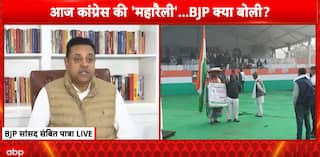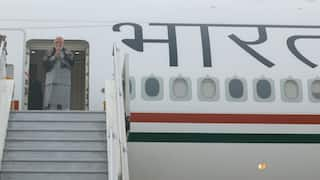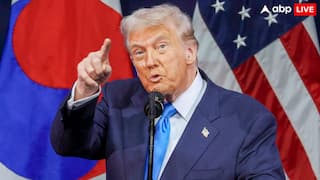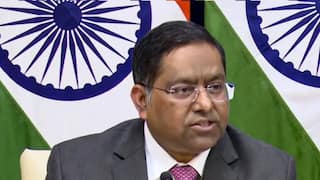Shehbaz Sharif Elected As Pakistan's Prime Minister, Defeats PTI's Omar With 201 Votes
Omer Ayub Khan, the PTI’s candidate for the premier, secured 92 votes.

PML-N President Shehbaz Sharif, who is the joint candidate of the newly-formed eight-party alliance, elected as Prime Minister of Pakistan at the newly-elected National Assembly on Sunday. He defeated the PTI-nominated Omar Ayub Khan with 201 votes.
Omer Ayub Khan, the PTI’s candidate for the premier, secured 92 votes.
Earlier, both candidates had filed nomination papers to the National Assembly Secretariat, which were confirmed legitimate by Speaker Ayaz Sadiq following a scrutiny held in the presence of leaders from both parties.
Pakistan went to the polls on February 8 in a vote plagued by a mobile internet ban on election day, arrests and violence in the run-up, and unusually delayed results, prompting claims of vote rigging.
Shehbaz, 72, is the younger brother of former three-time prime minister Nawaz Sharif, 74, who surprised many last month when he was named the party's prime ministerial nominee.
Nawaz Sharif, who returned to Pakistan from London in October last year to become the country's prime minister for the fourth time, chose not to run again after his PML-N party failed to win enough seats in the February 8 elections to form a government on its own.
The elections, which were plagued by claims of vote manipulation, saw more than 90 independent candidates supported by imprisoned former Prime Minister Imran Khan's PTI gain the most seats in the 266-member National Assembly.
However, earlier in a post-election agreement, the Mutahhida Qaumi Movement-Pakistan (MQM-P), Istehkam-e-Pakistan Party, and Pakistan Peoples Party (PPP) have all endorsed the PML-N's nominee, guaranteeing that Shehbaz Sharif is easily elected as the 33rd Prime Minister. Geo News said that Ayub did not have the numbers.
During his previous term, Sharif's government was able to negotiate a critical International Monetary Fund (IMF) deal, but the process was fraught with difficulties, and the measures required by the agreement, which expires in April, have contributed to rising prices and put additional strain on poor and middle class households.






































